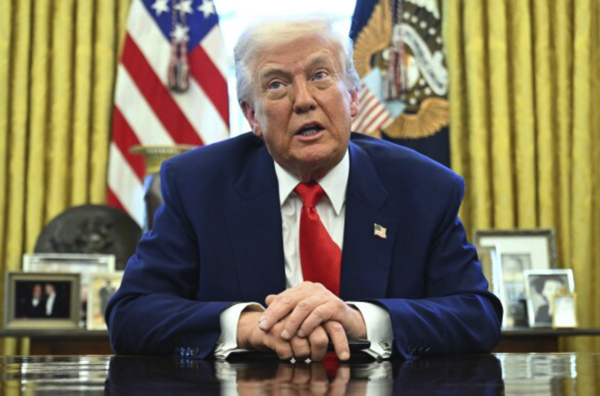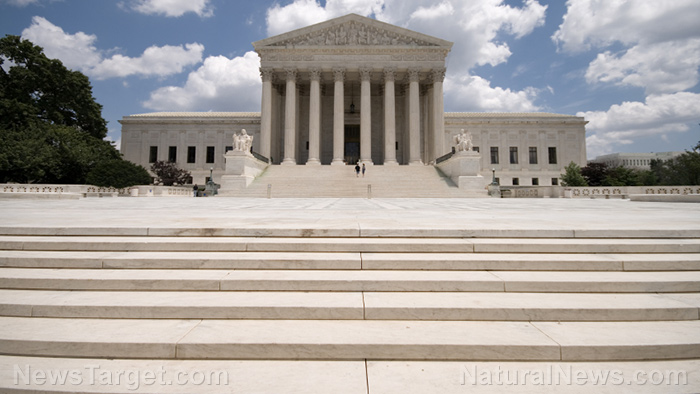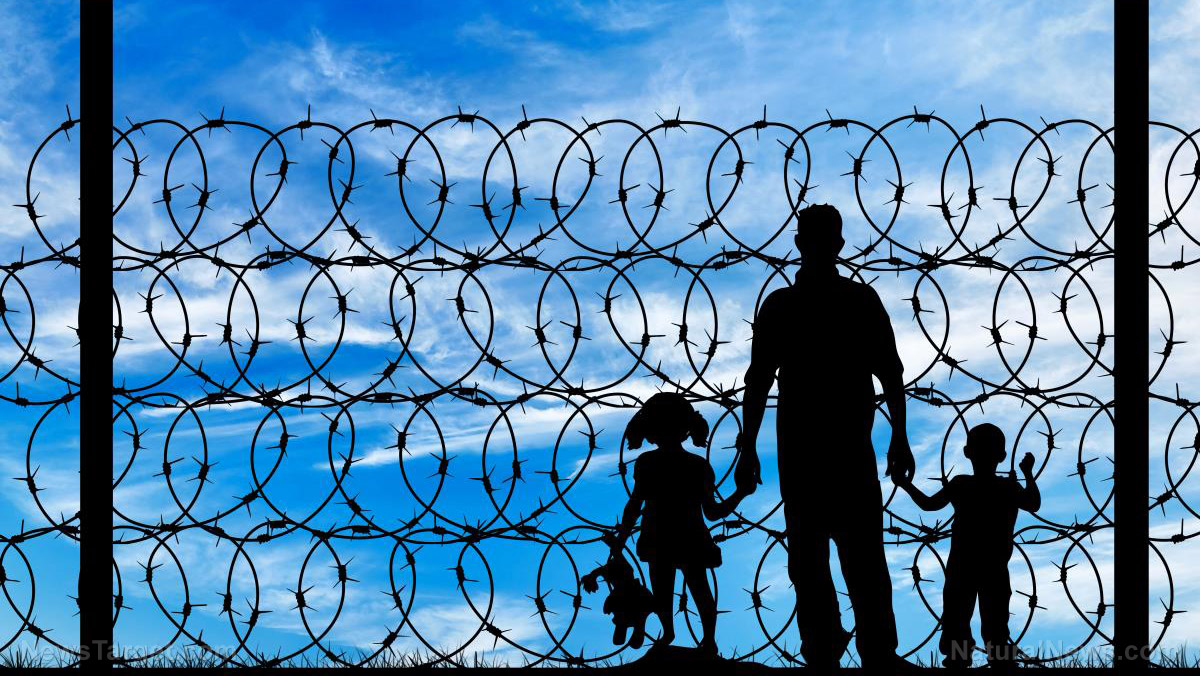U.S. demands U.K. protect FREE SPEECH, repeal hate speech authoritarianism, in latest trade deal negotiations
By ljdevon // 2025-04-18
Tweet
Share
Copy

In a move that has sparked intense debate on both sides of the Atlantic, the Trump administration is reportedly demanding that the UK repeal its hate speech laws as a condition for securing a trade deal. This demand, according to sources close to U.S. Vice President JD Vance, is a critical sticking point in the ongoing negotiations between Washington and London. The issue has brought to the forefront a broader discussion about the balance between protecting free speech and preventing harmful content, particularly in the digital age.
Key points:
- The Trump administration is pressuring the UK to repeal hate speech laws as a condition for a trade deal.
- U.S. Vice President JD Vance has expressed strong concerns over the erosion of free speech in the UK.
- The UK government has rejected these claims, but the issue remains a sticking point in negotiations.
- Americans argue that the UK's hate speech laws are vague and infringe on free speech, leading to a significant number of arrests
- Online censorship has grown into an Orwellian police state in the UK, as authorities attempt to shut down debate and protest on a number of important topics.
The pressure is on: Trump’s ultimatum to Starmer and the UK
The administration of U.S. President Donald Trump has made it clear that free speech is a non-negotiable issue in the trade talks. In a recent interview with the British website UnHerd, Vice President JD Vance expressed optimism about the negotiations, stating, "We’re certainly working very hard with Keir Starmer’s government. The president really loves the United Kingdom. He loved the Queen. He admires and loves the King. It is a very important relationship. And he’s a businessman and has a number of important business relationships in [Britain]. But I think it’s much deeper than that. There’s a real cultural affinity. And, of course, fundamentally, America is an Anglo country." However, the optimism is a strategic move to put pressure on the UK government. A source close to the administration told The Independent, "The vice-president expressing optimism [on a trade deal] is a way of putting further pressure on the UK over free speech. If a deal does not go through, it makes Labour look bad. No free speech, no deal. It is as simple as that."The UK's hate speech laws: suppressing political dissent
The UK's hate speech laws have been a source of controversy for years. In 2023, UK police detained over 12,000 people—approximately 33 per day — for online messages deemed offensive or distressing under the legislation, according to The Times. Critics, including civil liberties groups, argue that these laws are vague and infringe on free speech. The laws have been used to silence critics and dissenters, particularly those who challenge left-wing political agendas, leading to a chilling effect on open debate and protest. Vance has previously criticized European leaders for retreating from democratic values. During a speech at the Munich Security Conference in February, he accused them of censoring speech and suppressing opposition parties, warning that the greatest threat to democracy comes from within. The UK, he argues, must recommit itself to the essence of free speech without altering it to suit political agendas.The broader implications: democracy and accountability
The pressure from the US is not just about securing a trade deal; it is about defending the principles of democracy and holding authoritarian governments accountable. If the people of the UK cannot hold their government accountable, the U.S. should step in and pressure UK leadership to restore free speech rights, allowing for protests, open debate, and online speech that challenges the status quo. The UK’s left-wing authoritarianism must be dismantled for the U.S. to have a serious and constructive relationship with these European countries. The issue has broader implications for the global order. As the world witnesses with the rise of authoritarian regimes and the erosion of democratic norms, the US is taking a stand to protect individual freedoms and hold governments accountable. The UK, a long-standing ally, must be part of this effort to preserve the values that have underpinned the Western world for centuries. As the negotiations continue, the question remains: Will the UK prioritize its trade interests or its commitment to free speech? The answer will have far-reaching consequences for the future of democracy and the relationship between the U.S. and the UK. In the words of Vice President JD Vance, "No free speech, no deal. It is as simple as that." Sources include: RT.com Independent.co.uk MSN.comTweet
Share
Copy
Tagged Under:
protests Donald Trump free speech politics censorship foreign relations democracy freedom tyranny White House big government authoritarianism accountability resist fundamental rights suppressed progress trade deals online speech liberty opposition parties
You Might Also Like
Manufacturing surge under Trump sparks optimism amid concerns over economic strains
By Willow Tohi // Share
By Lance D Johnson // Share
Supreme Court weighs birthright citizenship restriction amid claims of executive overreach
By Willow Tohi // Share
Trump’s critical Ukraine minerals deal nears completion
By Cassie B. // Share
Recent News
Eating black sesame may slash heart disease risk
By newseditors // Share
SpaceX emerges as frontrunner for Trump's Golden Dome missile shield
By isabelle // Share








